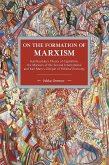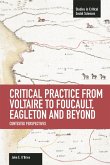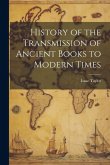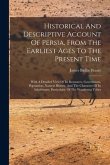Seyed Javad Miri
Revisiting the Critical Legacy of Shah Ismail
Versandkostenfrei innerhalb Deutschlands
20,99 €
inkl. MwSt.
Versandkostenfrei*
Erscheint vorauss. 1. Juli 2026
Melden Sie sich
hier
hier
für den Produktalarm an, um über die Verfügbarkeit des Produkts informiert zu werden.

10 °P sammeln
Seyed Javad Miri
Revisiting the Critical Legacy of Shah Ismail
- Broschiertes Buch
A groundbreaking reassessment of the legacy of the enigmatic Shah Ismail. Seyed Javad Miri presents Shah Ismail not merely as a historical figure but as a mystic, poet, and thinker who profoundly influenced Iranian and global intellectual landscapes. Through critical approaches to knowledge, language, and social theory, the book unearths the marginalized Gnostic tradition of Khatai, revealing its enduring significance. By challenging Eurocentric and nationalist historiographies, Miri invites readers to rethink the intersections of Irfan, governance, and cultural identity.
Andere Kunden interessierten sich auch für
![On the Formation of Marxism On the Formation of Marxism]() Jukka GronowOn the Formation of Marxism30,99 €
Jukka GronowOn the Formation of Marxism30,99 €![Critical Practice from Voltaire to Foucault, Eagleton and Beyond Critical Practice from Voltaire to Foucault, Eagleton and Beyond]() John E O'BrienCritical Practice from Voltaire to Foucault, Eagleton and Beyond44,99 €
John E O'BrienCritical Practice from Voltaire to Foucault, Eagleton and Beyond44,99 €![Nadir Shah Nadir Shah]() DurandNadir Shah24,99 €
DurandNadir Shah24,99 €![History of the Transmission of Ancient Books to Modern Times History of the Transmission of Ancient Books to Modern Times]() Isaac TaylorHistory of the Transmission of Ancient Books to Modern Times24,99 €
Isaac TaylorHistory of the Transmission of Ancient Books to Modern Times24,99 €![From Moscow to the Persian Gulf From Moscow to the Persian Gulf]() Benjamin Burges MooreFrom Moscow to the Persian Gulf28,99 €
Benjamin Burges MooreFrom Moscow to the Persian Gulf28,99 €![Historical And Descriptive Account Of Persia, From The Earliest Ages To The Present Time: With A Detailed View Of Its Resources, Government, Populatio Historical And Descriptive Account Of Persia, From The Earliest Ages To The Present Time: With A Detailed View Of Its Resources, Government, Populatio]() James Baillie FraserHistorical And Descriptive Account Of Persia, From The Earliest Ages To The Present Time: With A Detailed View Of Its Resources, Government, Populatio26,99 €
James Baillie FraserHistorical And Descriptive Account Of Persia, From The Earliest Ages To The Present Time: With A Detailed View Of Its Resources, Government, Populatio26,99 €![The Critical Period Of American History 1783 1789 The Critical Period Of American History 1783 1789]() John FiskeThe Critical Period Of American History 1783 178924,99 €
John FiskeThe Critical Period Of American History 1783 178924,99 €-
-
-
A groundbreaking reassessment of the legacy of the enigmatic Shah Ismail. Seyed Javad Miri presents Shah Ismail not merely as a historical figure but as a mystic, poet, and thinker who profoundly influenced Iranian and global intellectual landscapes. Through critical approaches to knowledge, language, and social theory, the book unearths the marginalized Gnostic tradition of Khatai, revealing its enduring significance. By challenging Eurocentric and nationalist historiographies, Miri invites readers to rethink the intersections of Irfan, governance, and cultural identity.
Produktdetails
- Produktdetails
- Verlag: Haymarket Books
- Seitenzahl: 170
- Erscheinungstermin: 1. Juli 2026
- Englisch
- ISBN-13: 9798888907962
- Artikelnr.: 75286057
- Herstellerkennzeichnung
- Libri GmbH
- Europaallee 1
- 36244 Bad Hersfeld
- gpsr@libri.de
- Verlag: Haymarket Books
- Seitenzahl: 170
- Erscheinungstermin: 1. Juli 2026
- Englisch
- ISBN-13: 9798888907962
- Artikelnr.: 75286057
- Herstellerkennzeichnung
- Libri GmbH
- Europaallee 1
- 36244 Bad Hersfeld
- gpsr@libri.de
Seyed Javad Miri is Professor of Sociology and Philosophy at the Institute of Humanities and Cultural Studies in Tehran. He has authored works on critical social theory, philosophy of language, and post-colonial thinkers.
Introduction: the Gnostic Legacy of Shah Ismail
1 Shah Ismail and the Importance of the Gnostic Legacy in the Islamic World
1 Introduction
2 The Importance of Sciology of Poetry
3 Eurocentric Historiography and Ignoring Shah Ismail
4 Shah Ismail as Part of a Tradition
2 Overcoming Cognitive Biases in Understanding the Gnostic Legacy of Shah
Ismail
1 Introduction
2 Mohammad Ali Foroughi and Inaccessibility Strategies of Texts
3 Seyyed Hossein Nasr and Inaccessibility Strategies of Texts
4 Abbas Eqbal Ashtiani and Orientalist Discourse Design
5 Avoiding Cognitive Biases
3 Linguistic Classifications and Deletion of the Gnostic Legacy of Shah
Ismail
1 Introduction
2 What Is Language?
3 Language Classification in Iran
4 The Term “Local Language” and the Elimination of Language Possibilities
5 The Importance of Paying Attention to the Philosophy of Language
6 Conclusion
4 Rereading the Gnostic Legacy of Shah Ismail
1 Marginalization of the Texts of the Khatai Tradition
2 Rereading the Texts of the Khatai Tradition
3 The Gnostic Tradition of Shah Ismail in Contemporary Studies
4 The Criteria for Reconstructing the Gnostic Tradition of Shah Ismail
5 The Gnostic Legacy of Shah Ismail: a Study Scheme
5 Sociology of Knowledge and Its Relationship with Diwan Shah Ismail
1 Introduction
2 What Is Sociology of Knowledge?
3 Diwan Shah Ismail from the Perspective of Sociology of Knowledge
4 The Gnostic Tradition of Shah Ismail in the Context of Islamic Studies
5 Sociology of Knowledge and Removal of the Gnostic Tradition of Shah
Ismail
6 Islamic Hekmat or Gnosis in Persian Form
6 Language and Religion in Iranian Thought in Relation to the Gnostic
Legacy of Shah Ismail Khatai
1 Introduction
2 Religious Transformation in Iran
3 Language Status in Pre-Islamic Iran
4 Linguistic Evolution in Iran
5 Religious Transformation in Iran
6 The Relation of Religious, Madhhab and Linguistic Developments with Shah
Ismail
7 Jalal Al-Ahmed and the Theory of Expelling the Turkish Language from the
Public Sphere
1 Introduction
2 The Theory of Expelling the Turkish Language from the Public Domain
3 The Relationship between the Expulsion Theory of the Turkish Language
and the Gnostic Tradition of Shah Ismail
8 The Gnostic Legacy of Shah Ismail Safavi
1 Introduction
2 Important Developments in the History of Iran
9 Truth in Shah Ismail Safavi’s Thought
1 Introduction
2 Truth in the View of Shah Ismail
10 Mohabat in the Gnostic Legacy of Shah Ismail
1 Introduction
2 Mohabat in the Gnostic Tradition and Theoretical Irfan
3 Mohabat in the Thought of Shah Ismail Khatai
11 Sojourn in the Gnostic Legacy of Shah Ismail
1 Introduction
2 Sojourn in the Traditions of Irfan and Sufism
3 Sojourn in the Thought of Shah Ismail
12 On the Reciprocal Relationship between Shiism and Sufism
1 Introduction
2 Spiritual Crisis: Turning Point in the Life of Mystics
3 The Link between Shiism and Sufism
4 The Influence of Sayyed Haydar Amoli and Sheikh Safi-ad-Din Ardabili on
Shah Ismail
13 The Impact of Sayyed Haydar Amoli on Shah Ismail: Fostering Unity
between Shiism and Sufism
1 Introduction
2 The Gnostic Tradition of Sayyed Haydar Amoli
3 The Influence of Sayyed Haydar Amoli on Shah Ismail
14 Conclusion
References
Index
1 Shah Ismail and the Importance of the Gnostic Legacy in the Islamic World
1 Introduction
2 The Importance of Sciology of Poetry
3 Eurocentric Historiography and Ignoring Shah Ismail
4 Shah Ismail as Part of a Tradition
2 Overcoming Cognitive Biases in Understanding the Gnostic Legacy of Shah
Ismail
1 Introduction
2 Mohammad Ali Foroughi and Inaccessibility Strategies of Texts
3 Seyyed Hossein Nasr and Inaccessibility Strategies of Texts
4 Abbas Eqbal Ashtiani and Orientalist Discourse Design
5 Avoiding Cognitive Biases
3 Linguistic Classifications and Deletion of the Gnostic Legacy of Shah
Ismail
1 Introduction
2 What Is Language?
3 Language Classification in Iran
4 The Term “Local Language” and the Elimination of Language Possibilities
5 The Importance of Paying Attention to the Philosophy of Language
6 Conclusion
4 Rereading the Gnostic Legacy of Shah Ismail
1 Marginalization of the Texts of the Khatai Tradition
2 Rereading the Texts of the Khatai Tradition
3 The Gnostic Tradition of Shah Ismail in Contemporary Studies
4 The Criteria for Reconstructing the Gnostic Tradition of Shah Ismail
5 The Gnostic Legacy of Shah Ismail: a Study Scheme
5 Sociology of Knowledge and Its Relationship with Diwan Shah Ismail
1 Introduction
2 What Is Sociology of Knowledge?
3 Diwan Shah Ismail from the Perspective of Sociology of Knowledge
4 The Gnostic Tradition of Shah Ismail in the Context of Islamic Studies
5 Sociology of Knowledge and Removal of the Gnostic Tradition of Shah
Ismail
6 Islamic Hekmat or Gnosis in Persian Form
6 Language and Religion in Iranian Thought in Relation to the Gnostic
Legacy of Shah Ismail Khatai
1 Introduction
2 Religious Transformation in Iran
3 Language Status in Pre-Islamic Iran
4 Linguistic Evolution in Iran
5 Religious Transformation in Iran
6 The Relation of Religious, Madhhab and Linguistic Developments with Shah
Ismail
7 Jalal Al-Ahmed and the Theory of Expelling the Turkish Language from the
Public Sphere
1 Introduction
2 The Theory of Expelling the Turkish Language from the Public Domain
3 The Relationship between the Expulsion Theory of the Turkish Language
and the Gnostic Tradition of Shah Ismail
8 The Gnostic Legacy of Shah Ismail Safavi
1 Introduction
2 Important Developments in the History of Iran
9 Truth in Shah Ismail Safavi’s Thought
1 Introduction
2 Truth in the View of Shah Ismail
10 Mohabat in the Gnostic Legacy of Shah Ismail
1 Introduction
2 Mohabat in the Gnostic Tradition and Theoretical Irfan
3 Mohabat in the Thought of Shah Ismail Khatai
11 Sojourn in the Gnostic Legacy of Shah Ismail
1 Introduction
2 Sojourn in the Traditions of Irfan and Sufism
3 Sojourn in the Thought of Shah Ismail
12 On the Reciprocal Relationship between Shiism and Sufism
1 Introduction
2 Spiritual Crisis: Turning Point in the Life of Mystics
3 The Link between Shiism and Sufism
4 The Influence of Sayyed Haydar Amoli and Sheikh Safi-ad-Din Ardabili on
Shah Ismail
13 The Impact of Sayyed Haydar Amoli on Shah Ismail: Fostering Unity
between Shiism and Sufism
1 Introduction
2 The Gnostic Tradition of Sayyed Haydar Amoli
3 The Influence of Sayyed Haydar Amoli on Shah Ismail
14 Conclusion
References
Index
Introduction: the Gnostic Legacy of Shah Ismail
1 Shah Ismail and the Importance of the Gnostic Legacy in the Islamic World
1 Introduction
2 The Importance of Sciology of Poetry
3 Eurocentric Historiography and Ignoring Shah Ismail
4 Shah Ismail as Part of a Tradition
2 Overcoming Cognitive Biases in Understanding the Gnostic Legacy of Shah
Ismail
1 Introduction
2 Mohammad Ali Foroughi and Inaccessibility Strategies of Texts
3 Seyyed Hossein Nasr and Inaccessibility Strategies of Texts
4 Abbas Eqbal Ashtiani and Orientalist Discourse Design
5 Avoiding Cognitive Biases
3 Linguistic Classifications and Deletion of the Gnostic Legacy of Shah
Ismail
1 Introduction
2 What Is Language?
3 Language Classification in Iran
4 The Term “Local Language” and the Elimination of Language Possibilities
5 The Importance of Paying Attention to the Philosophy of Language
6 Conclusion
4 Rereading the Gnostic Legacy of Shah Ismail
1 Marginalization of the Texts of the Khatai Tradition
2 Rereading the Texts of the Khatai Tradition
3 The Gnostic Tradition of Shah Ismail in Contemporary Studies
4 The Criteria for Reconstructing the Gnostic Tradition of Shah Ismail
5 The Gnostic Legacy of Shah Ismail: a Study Scheme
5 Sociology of Knowledge and Its Relationship with Diwan Shah Ismail
1 Introduction
2 What Is Sociology of Knowledge?
3 Diwan Shah Ismail from the Perspective of Sociology of Knowledge
4 The Gnostic Tradition of Shah Ismail in the Context of Islamic Studies
5 Sociology of Knowledge and Removal of the Gnostic Tradition of Shah
Ismail
6 Islamic Hekmat or Gnosis in Persian Form
6 Language and Religion in Iranian Thought in Relation to the Gnostic
Legacy of Shah Ismail Khatai
1 Introduction
2 Religious Transformation in Iran
3 Language Status in Pre-Islamic Iran
4 Linguistic Evolution in Iran
5 Religious Transformation in Iran
6 The Relation of Religious, Madhhab and Linguistic Developments with Shah
Ismail
7 Jalal Al-Ahmed and the Theory of Expelling the Turkish Language from the
Public Sphere
1 Introduction
2 The Theory of Expelling the Turkish Language from the Public Domain
3 The Relationship between the Expulsion Theory of the Turkish Language
and the Gnostic Tradition of Shah Ismail
8 The Gnostic Legacy of Shah Ismail Safavi
1 Introduction
2 Important Developments in the History of Iran
9 Truth in Shah Ismail Safavi’s Thought
1 Introduction
2 Truth in the View of Shah Ismail
10 Mohabat in the Gnostic Legacy of Shah Ismail
1 Introduction
2 Mohabat in the Gnostic Tradition and Theoretical Irfan
3 Mohabat in the Thought of Shah Ismail Khatai
11 Sojourn in the Gnostic Legacy of Shah Ismail
1 Introduction
2 Sojourn in the Traditions of Irfan and Sufism
3 Sojourn in the Thought of Shah Ismail
12 On the Reciprocal Relationship between Shiism and Sufism
1 Introduction
2 Spiritual Crisis: Turning Point in the Life of Mystics
3 The Link between Shiism and Sufism
4 The Influence of Sayyed Haydar Amoli and Sheikh Safi-ad-Din Ardabili on
Shah Ismail
13 The Impact of Sayyed Haydar Amoli on Shah Ismail: Fostering Unity
between Shiism and Sufism
1 Introduction
2 The Gnostic Tradition of Sayyed Haydar Amoli
3 The Influence of Sayyed Haydar Amoli on Shah Ismail
14 Conclusion
References
Index
1 Shah Ismail and the Importance of the Gnostic Legacy in the Islamic World
1 Introduction
2 The Importance of Sciology of Poetry
3 Eurocentric Historiography and Ignoring Shah Ismail
4 Shah Ismail as Part of a Tradition
2 Overcoming Cognitive Biases in Understanding the Gnostic Legacy of Shah
Ismail
1 Introduction
2 Mohammad Ali Foroughi and Inaccessibility Strategies of Texts
3 Seyyed Hossein Nasr and Inaccessibility Strategies of Texts
4 Abbas Eqbal Ashtiani and Orientalist Discourse Design
5 Avoiding Cognitive Biases
3 Linguistic Classifications and Deletion of the Gnostic Legacy of Shah
Ismail
1 Introduction
2 What Is Language?
3 Language Classification in Iran
4 The Term “Local Language” and the Elimination of Language Possibilities
5 The Importance of Paying Attention to the Philosophy of Language
6 Conclusion
4 Rereading the Gnostic Legacy of Shah Ismail
1 Marginalization of the Texts of the Khatai Tradition
2 Rereading the Texts of the Khatai Tradition
3 The Gnostic Tradition of Shah Ismail in Contemporary Studies
4 The Criteria for Reconstructing the Gnostic Tradition of Shah Ismail
5 The Gnostic Legacy of Shah Ismail: a Study Scheme
5 Sociology of Knowledge and Its Relationship with Diwan Shah Ismail
1 Introduction
2 What Is Sociology of Knowledge?
3 Diwan Shah Ismail from the Perspective of Sociology of Knowledge
4 The Gnostic Tradition of Shah Ismail in the Context of Islamic Studies
5 Sociology of Knowledge and Removal of the Gnostic Tradition of Shah
Ismail
6 Islamic Hekmat or Gnosis in Persian Form
6 Language and Religion in Iranian Thought in Relation to the Gnostic
Legacy of Shah Ismail Khatai
1 Introduction
2 Religious Transformation in Iran
3 Language Status in Pre-Islamic Iran
4 Linguistic Evolution in Iran
5 Religious Transformation in Iran
6 The Relation of Religious, Madhhab and Linguistic Developments with Shah
Ismail
7 Jalal Al-Ahmed and the Theory of Expelling the Turkish Language from the
Public Sphere
1 Introduction
2 The Theory of Expelling the Turkish Language from the Public Domain
3 The Relationship between the Expulsion Theory of the Turkish Language
and the Gnostic Tradition of Shah Ismail
8 The Gnostic Legacy of Shah Ismail Safavi
1 Introduction
2 Important Developments in the History of Iran
9 Truth in Shah Ismail Safavi’s Thought
1 Introduction
2 Truth in the View of Shah Ismail
10 Mohabat in the Gnostic Legacy of Shah Ismail
1 Introduction
2 Mohabat in the Gnostic Tradition and Theoretical Irfan
3 Mohabat in the Thought of Shah Ismail Khatai
11 Sojourn in the Gnostic Legacy of Shah Ismail
1 Introduction
2 Sojourn in the Traditions of Irfan and Sufism
3 Sojourn in the Thought of Shah Ismail
12 On the Reciprocal Relationship between Shiism and Sufism
1 Introduction
2 Spiritual Crisis: Turning Point in the Life of Mystics
3 The Link between Shiism and Sufism
4 The Influence of Sayyed Haydar Amoli and Sheikh Safi-ad-Din Ardabili on
Shah Ismail
13 The Impact of Sayyed Haydar Amoli on Shah Ismail: Fostering Unity
between Shiism and Sufism
1 Introduction
2 The Gnostic Tradition of Sayyed Haydar Amoli
3 The Influence of Sayyed Haydar Amoli on Shah Ismail
14 Conclusion
References
Index







